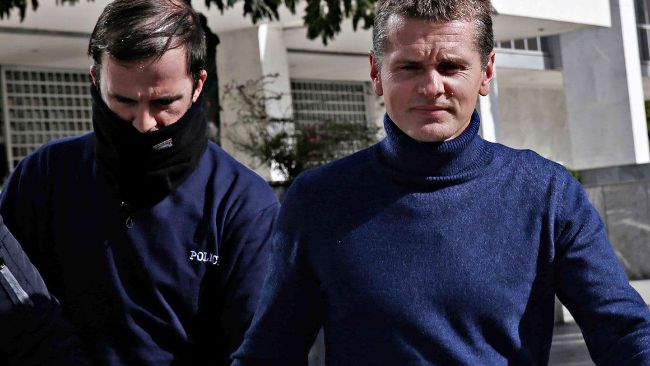The Release of Alexander Vinnik: A Significant Prisoner Exchange Between the U.S. and Russia
Introduction to Alexander Vinnik and the Prisoner Exchange
Alexander Vinnik, the 44-year-old former operator of the once-prominent Bitcoin exchange BTC-e, has been released from U.S. custody as part of a prisoner exchange with Russia. This surprise move involved swapping Vinnik with Marc Fogel, an American teacher who had been jailed in Russia. Fogel returned to the U.S. following the deal, marking a rare instance of cooperation between the two nations amid strained relations. The exchange highlights the complex and often secretive nature of diplomatic negotiations, particularly when it comes to securing the release of citizens detained abroad.
The Rise and Fall of BTC-e: A Bitcoin Exchange with a Dark Side
BTC-e was one of the earliest and most influential Bitcoin exchanges, playing a significant role in popularizing the trading of the world’s most widely recognized digital asset. At its peak, the platform boasted over 1 million customers and facilitated more than $9 billion in transactions between 2011 and 2017. However, its success was marred by its association with criminal activities. U.S. prosecutors alleged that BTC-e became a hub for cybercriminals, drug dealers, and money launderers, who used the platform to move and disguise ill-gotten proceeds. Vinnik was accused of operating the exchange "with the intent to promote" such illegal activities, contributing to the loss of $121 million.
Alexander Vinnik’s Legal Troubles and Extradition
Vinnik’s journey into the spotlight of international law enforcement began in 2017 when he was arrested in Greece. After a prolonged legal battle, he was extradited to the United States, where he faced charges related to money laundering and operating an unlicensed money service business. In 2024, Vinnik pleaded guilty to money laundering conspiracy, a charge that carried a maximum sentence of 20 years in prison. His case drew significant attention due to the scale of BTC-e’s operations and its alleged ties to criminal networks.
The Guilty Plea, Sentencing, and Its Implications
Although Vinnik pleaded guilty to the charges, the specifics of his sentencing were not immediately disclosed. However, the case underscored the growing scrutiny of cryptocurrency platforms by law enforcement agencies worldwide. BTC-e’s rise and fall serve as a cautionary tale about the risks of unchecked digital currency exchanges and their potential exploitation by criminal entities. Vinnik’s case also highlighted the challenges governments face in regulating the crypto space while balancing the need to combat financial crimes.
Previous Attempts at Prisoner Exchange
Despite his guilty plea, Vinnik’s legal team had long advocated for his inclusion in prisoner exchange negotiations between the U.S. and Russia. These efforts were unsuccessful until the recent deal that secured his release. Previously, high-profile exchanges, such as the one involving Evan Gershkovich, a Wall Street Journal reporter detained in Russia, had raised hopes for Vinnik’s release. However, his case remained unresolved until now, reflecting the complex and often unpredictable nature of such diplomatic negotiations.
The Significance of the Prisoner Exchange and Its Broader Implications
The release of Alexander Vinnik and Marc Fogel marks a rare moment of cooperation between the U.S. and Russia, nations that have otherwise been at odds over a range of issues, including geopolitical conflicts and human rights concerns. While the exchange may not signal a broader thaw in relations, it demonstrates that both countries can find common ground in specific cases. For Vinnik, the deal brings an end to a years-long legal saga, while for Fogel, it represents a chance to reunite with his family after a prolonged ordeal.
The case of Alexander Vinnik also serves as a reminder of the intersection of cryptocurrencies and criminal activity, as well as the ongoing challenges of international law enforcement collaboration. As the crypto industry continues to evolve, the lessons learned from Vinnik’s story will likely shape future efforts to regulate and oversee digital currency exchanges.
In conclusion, the prisoner exchange involving Alexander Vinnik and Marc Fogel is a multifaceted story that touches on diplomacy, crime, and the evolving landscape of cryptocurrencies. While Vinnik’s release brings closure to his personal saga, it also raises questions about the broader implications for international relations and the fight against financial crimes.















